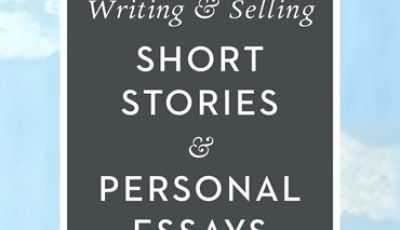

Writing and Selling Short Stories by Windy Lynn Harris
Variety, as the old saw has it, is the spice of life. Every so often, a book shows up in The Big Thrill list that’s a bit different and this is certainly one of those instances. As an avid reader of—and occasional writer of—short stories, I was delighted to take the opportunity to get Windy Lynn Harris’s take on the subject.
This is your first full length book. How does it feel?
I’m thrilled, of course, but I miss her. Picture me looking wistfully out the window, waving goodbye to a dear friend. I spent years compiling the material for this book, studying industry information, researching, attending events, talking to editors, etc. Saying goodbye to a final copy meant an end to the fun of putting the project together.
Is the sensation different to publishing short stories?
Absolutely. Maybe it’s because I have so many short pieces of writing on my desk every month. I write both essays and short stories: currently there are seven short items in late-editing or submission status around here, and that’s pretty typical for me. Seeing one of my shorts fly off to a new home is a thrilling relief. It makes room for the next idea in my head.
Do you have a favorite short story? Which one and why?
I read Shirley Jackson’s The Lottery each January to set the mood for my year. It’s more than great storytelling that I’m hoping to tap into when I dive into that story, it’s a reminder about prose that stays in your chest when the last word is done. That’s what I hope to achieve.
My all-time favorite short story is The Unrest Cure by Saki, which is totally brilliant and completely of its time (pre Great War), so readers today might find parts of it a touch offensive. Where do you stand on the “be true to the era” vs “don’t offend modern sensibilities” debate?
As writers, we’re in charge of illuminating the truth, period. The Unrest Cure is a terrific example of that. “This is how it really was, in this year, in this place, with these men,” Saki tells us, even though it’s a fictional account. This story is a powerful historical look at what it was like to be alive in that era. Capturing that level of authenticity is more important than making it an easy-to-swallow read.
You’ve published a story called Dear Quiche, I’d Like an Apology which is a brilliant title. Any little clues as to what it’s about?
In this story, a sad little slice of egg pie becomes the centerpiece of one couple’s power-struggle. I like to play with humor and absurdism at times, especially in titles.
The advent of e-books and publishers willing to embrace them, plus the growth of self-publishing, has led to a new market opening up for short and novella length stories. How do you feel the business has changed over the past few years?
I’m thrilled at the growing marketplace for short creative work, especially among literary magazines. The biggest change is speed of publication. Print-only magazines still have lengthy stretches between submission letter and seeing your work in print (sometimes up to two years!), but online publications are able to publish new work in a much shorter period of time. Some digital magazines publish new stories three times a week.
On a couple of occasions, I’ve been on the acquisitions team for charity anthologies and built up a clear picture of what, for me, did and didn’t constitute a great first few paragraphs. What’s your view on this? Do you have couple of “killer” tips to share?
I’m a freelance editor specializing in creative shorts, so I get to read openings often. The most common problem I see is a short story opening that has been written at the pace of a novel. Short stories and novels are two completely different artistic animals. Readers need to have a hint about the conflict of a short story by the end of the first paragraph.
One of the pieces of advice in your book is “Read, read, read.” What three books or stories have you read that have made a difference to your career?
That’s a tough question! Many books have influenced me along the way, but here are three that stand out. Animal Farm by George Orwell is the book that got me hooked on literature. It was the first book that I read deeply. Once you know the joy of that, you’re in for life. Later, White Oleander by Janet Fitch opened my eyes to how a great short story could become a successful novel. I hadn’t imagined short stories as a vehicle for becoming a novelist before then, but I clung to the idea with both hands. I started reading contemporary short stories and writing shorts of my own. More recently, I was captivated by the brain science behind storytelling in Wired for Story by Lisa Cron. Her explanation of how and why great stories work was revelatory to me and inspired me to study novels, including my own novels-in-progress, with the reader’s emotional reaction as the focus. I’m in tune with that more clearly now, and it shows on the page.
Thanks for the insights, Windy. And for inspiring in me the need to read The Unrest Cure again.
*****
 Windy Lynn Harris is the author of WRITING & SELLING SHORT STORIES & PERSONAL ESSAYS: THE ESSENTIAL GUIDE TO GETTING YOUR WORK PUBLISHED (Writer’s Digest Books). She’s a prolific writer, a trusted mentor, and a frequent speaker at literary events. Her long list of short stories and personal essays have been published in literary, trade, and women’s magazines across the U.S. and Canada in places like The Literary Review, The Sunlight Press, and Literary Mama, among many other journals. Her articles for writers can be found at The Review Review, Writer’s Market, and many industry blogs.
Windy Lynn Harris is the author of WRITING & SELLING SHORT STORIES & PERSONAL ESSAYS: THE ESSENTIAL GUIDE TO GETTING YOUR WORK PUBLISHED (Writer’s Digest Books). She’s a prolific writer, a trusted mentor, and a frequent speaker at literary events. Her long list of short stories and personal essays have been published in literary, trade, and women’s magazines across the U.S. and Canada in places like The Literary Review, The Sunlight Press, and Literary Mama, among many other journals. Her articles for writers can be found at The Review Review, Writer’s Market, and many industry blogs.
To learn more about Windy please visit her website.
- The Deception by Kim Taylor Blakemore - September 30, 2022
- Death In The Aegean by M.A. Monnin - May 31, 2022
- Bad Blood Sisters by Saralyn Richard - February 28, 2022

